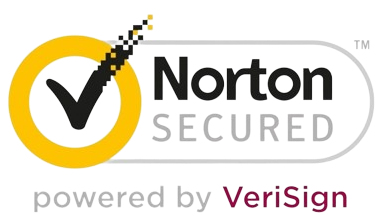The study of ancient languages offers fascinating insights into the cultural roots of modern societies. One such language, Proto-Celtic, is the reconstructed ancestor of all Celtic languages. For anyone interested in etymology, historical linguistics, or Celtic heritage, a Proto-Celtic dictionary is an essential tool. This guide explores the origins and importance of Proto-Celtic, the role of etymological dictionaries in preserving linguistic history, and the best resources available today.
By the end of this article, you’ll understand the value of a Proto-Celtic dictionary, how such dictionaries aid researchers and learners alike, and where to find top-rated tools to begin your own journey into ancient language study.
Understanding Proto-Celtic Language
Proto-Celtic is the theoretical common ancestor of all known Celtic languages, including Irish, Welsh, and Breton. It belongs to the Indo-European family and is believed to have been spoken around 800 BCE. Although no direct written records of Proto-Celtic exist, its structure and vocabulary have been reconstructed through comparative linguistics.
Key Characteristics of Proto-Celtic:
- Rich use of inflection and case systems
- Complex verb morphology
- Vocabulary reflecting a pastoral, warrior-based society
Its evolution influenced the formation of Old Irish, Gaulish, and other Celtic tongues. Understanding Proto-Celtic helps linguists trace changes in grammar, phonology, and semantics across time. This makes it a cornerstone for anyone researching Celtic linguistic history or studying languages like Irish.
For a deeper dive into how Proto-Celtic connects to Irish, see our Comparison of Irish and Scottish Gaelic Grammar.
The Role of Etymological Dictionaries in Studying Proto-Celtic Roots
Etymology is the study of word origins and historical development. For ancient languages like Proto-Celtic, where direct texts are lacking, etymological dictionaries are vital for:
- Reconstructing vocabulary through linguistic relatives
- Identifying cognates across Indo-European languages
- Analyzing sound changes and grammatical evolution
Linguists often rely on entries from an etymological dictionary of Proto-Celtic to support academic arguments and language reconstructions. These dictionaries don’t just list meanings; they explain how a word evolved across centuries and cultures.
Exploring Top Recommended Resources: A Curated List of the Best Proto-Celtic Dictionaries Available
Here are some of the most respected resources for learners and researchers:
1. Indogermanisches etymologisches Wörterbuch by Julius Pokorny
- A foundational resource covering Indo-European roots, including Proto-Celtic entries.
- Pros: Scholarly, detailed reconstructions
- Cons: Written in German, not beginner-friendly
2. University of Wales Centre for Advanced Welsh and Celtic Studies
- Offers extensive lexical databases and research on Celtic historical linguistics.
- External Resource:
3. The Online Proto-Celtic to English Lexicon (University of Leiden)
- A free, searchable database ideal for both amateur enthusiasts and academic linguists.
- Pros: Accessible interface, well-cited
- Cons: Limited grammatical context
4. Matasović’s “Etymological Dictionary of Proto-Celtic”
- Perhaps the most comprehensive Proto-Celtic dictionary to date.
- Pros: Academic quality, cited in research
- Cons: Can be expensive
Additional Resources:
- Online forums such as Reddit’s r/etymology or r/ancientlanguages
- Academic platforms like JSTOR or Academia.edu for published papers
Other Resources for Learning Irish Gaelic
While a Proto-Celtic dictionary is a great linguistic tool, learners may also want to explore modern Irish. Here are a few great places to start:
These resources cater to various skill levels and learning preferences, making them ideal complements to historical linguistic study.
Mastering Ancient Languages: Challenges and Rewards
Challenges:
- Scarcity of native speakers or recordings
- Complex grammar systems
- Inconsistent or incomplete records
Rewards:
- Deeper understanding of cultural heritage
- Improved analytical skills in linguistics
- Access to centuries-old texts and traditions
Mastering Proto-Celtic isn’t about fluency; it’s about uncovering the foundations of languages still spoken today, like Irish.
Preservation Initiatives for Endangered Linguistic Heritage
Language preservation is a growing concern worldwide. In the Celtic sphere, efforts are being made to:
- Digitize ancient texts and etymological records
- Develop language-learning platforms like Gaeilgeoir AI
- Support academic and community-led Celtic language revival projects
By using a Proto-Celtic dictionary, learners contribute to keeping this ancient linguistic legacy alive.
Conclusion
Whether you’re a student, language enthusiast, or seasoned researcher, exploring Proto-Celtic offers valuable insights into linguistic and cultural history. A reliable Proto-Celtic dictionary is more than a learning aid—it’s a portal to the past. Pairing these tools with modern resources like Gaeilgeoir AI enables a holistic approach to both ancient and living languages.
Ready to take your exploration further? Join a growing community of Irish and Celtic language learners and start your journey today with a free trial of Gaeilgeoir AI.


